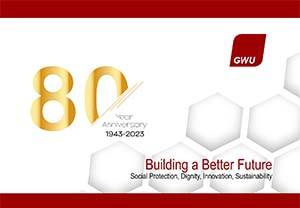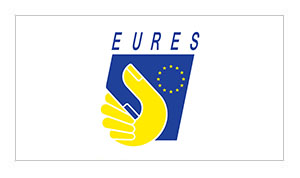The GWU said that a balance needs to be properly managed as this could otherwise result in downward pressure on wages and increased competition for certain jobs.
How does the GWU perceive the government’s emphasis on labour migration policy, especially in terms of worker protection?
The GWU recognises the government’s focus on labour migration as a reflection of Malta’s economic needs. With most economic sectors experiencing skill shortages, foreign workers contribute significantly to maintaining economic growth. However, our primary focus is on ensuring that foreign workers have sustainable and decent jobs. We make sure that foreign workers (in the organised workplace within the Union) receive the same treatment and working conditions as locals. Foreign and local workers alike deserve fair and safe working conditions, decent wages and respect for their rights. During the past years, the GWU always advocated for comprehensive policies that not only address economic demands but also guarantee that foreign workers are protected from exploitation and that their integration into the workforce does not disrupt the rights or job security of Maltese workers.
Does the GWU see risks for local workers with an increase in foreign labour, or is this viewed as an economic necessity?
The increase in foreign labour is, in many respects, an economic necessity due to Malta’s economic growth, demand for certain skills, a low birth rate and an aging population. However, there are potential risks if this demand is not managed responsibly including ensuring foreign workers have decent jobs and safeguarding the continued growth of wages and salaries. If this balance is not managed properly this could lead to downward pressure on wages and create competition for certain job categories, potentially impacting Maltese workers. The GWU emphasises for a balanced approach, advocating for protections that ensure foreign labour complements rather than competes unfairly with local workers. It is essential to safeguard the livelihoods of Maltese workers while meeting the economic demands that foreign workers help fulfil.
What steps does the GWU propose to ensure fair working conditions for both local and foreign workers?
The issue of fair working and equal working conditions for both local and foreign workers needs a multi-faceted approach. Collective bargaining coverage is ideal to ensure this. In workplaces that are organised in the GWU, all employees, irrespective of their nationality, gender or sexual orientation, receive the same pay and working conditions. The Adequate Minimum Wage directive will ensure that collective bargaining increases from 50% to 80%. On the legal aspect, the introduction of new legislation regarding recruiting agencies, outsourcing agencies and equal pay for jobs of equal value will ensure that both local and foreign workers receive the same remuneration and working conditions. Apart from the above, to protect both local and foreign workers, the GWU recommends implementing a robust regulatory authority that enforces fair wages, safe working environments and access to benefits across the board. We advocate for stricter oversight to prevent exploitation, particularly of foreign workers who may be more vulnerable to unfair practices. Additionally, automatic enrolment of all workers in a trade union of their choice will ensure greater enforcement and collective bargaining coverage. By ensuring equal treatment for all workers, we can create a more harmonious, highly skilful and productive workforce.
How can labour migration policies promote equal opportunities and fair wages?
Labour migration policies should be structured to ensure equal access to employment opportunities and fair wages, regardless of nationality. This includes setting industry-specific wage floors and mandating that economic migrants’ requests are based on constant market demands, rather than as a means to reduce labour costs. The GWU believes that providing skills training and certification pathways (like the skills passport, something the GWU has been advocating for many years) for both local and foreign workers, would help balance opportunities and prepare the workforce for roles that are in demand. Migration policies can thus be a vehicle to level the playing field and ensure the upgrading of skills and abilities by upholding standards that apply to all.
Does the union have concerns about job security for Maltese workers in this context?
If the influx of foreign workers is according to job vacancies that cannot be filled, then there should not be any concerns. The new migration economic policy needs to ensure and safeguard the employment, salaries and working conditions of all workers in the particular economic sector. We must ensure that Maltese workers do not face instability or job displacement as a result and we must also guarantee that foreign workers have access to decent jobs. The GWU on multiple occasions called for policies that prioritise and foster skills development within the local workforce. With these safeguards in place, the influx of foreign workers can support economic needs without undermining the security of Maltese jobs.
How will the GWU collaborate with the government to shape labour policies that benefit all workers in Malta?
The GWU is committed to an ongoing dialogue with the government to shape fair, inclusive labour policies. We constantly meet with foreign communities to discuss with them the obstacles and problems they face. We meet with other social partners to discuss various issues relating to the new world of work, and subsequently, we meet with the pertinent authorities to discuss these issues and workable solutions. Our role is to provide insight from the workers’ perspective and advocate for policies that protect and empower both local and foreign employees. By participating in consultations, we work to ensure that all labour policies, including migration, align with high standards of worker protection, fairness and sustainability. With regards the new migrant economic policy, apart from the fact that we will put forward our proposals for consideration, we already had an initial meeting with Minister Byron Camilleri. Our focus is to ensure a balanced workforce that meets Malta’s economic goals while safeguarding the rights and interests of all workers.







